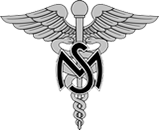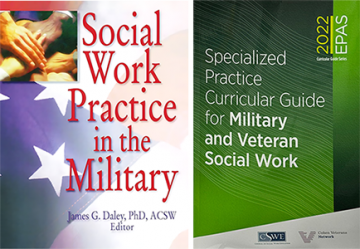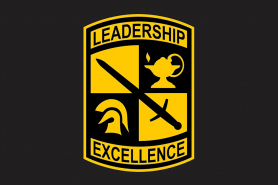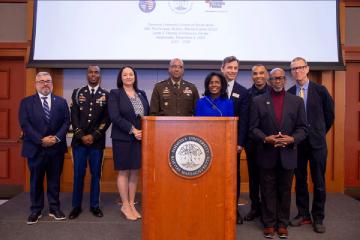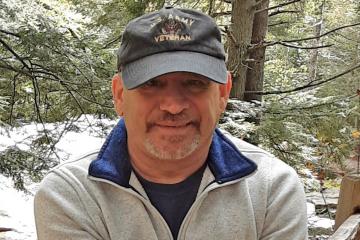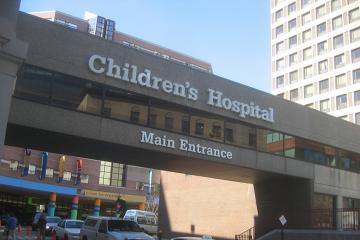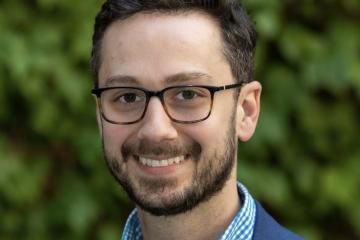The MSW degree requires 65 credit hours, consisting of 48 credit hours of classroom courses and 17 credit hours of practicum courses. Listed below is the MSW course sequence as of September 2022. On Ground course numbers have the prefix SW; online courses, SWO.
Specialized Year
| SW404 |
Social Welfare Policy |
3 |
| SW414 |
Assessment and Diagnosis |
3 |
| SW424A |
Advanced Clinical Practice |
3 |
| SW424B |
Advanced Clinical Practice |
3 |
| SW447A |
Practicum Education Year II |
4 |
| SW447B |
Practicum Education Year II |
4 |
| SW509 |
Evaluation in Social Work Practice |
3 |
|
Elective |
|
|
Elective |
|
|
Elective |
|
Licensure and Certificate Programs
As an MSW student, you may choose to pursue a certificate program in which you will gain advanced skills in a specific area of interest through a structured sequence of courses.
MSW with MA Licensure in School Social Work (On Campus)
Students in the MSW program interested in practicing as a school social worker can elect to work towards the Massachusetts state license to be a School Social Worker/School Adjustment Counselor (SSW/SAC). The certification is required to work as a clinical social worker in many school settings in Massachusetts.
Requirements for the MSW with Licensure as a School Social Worker/School Adjustment Counselor include:
- Sixty-two credits in the MSW program including SW 539A, SW in the Schools, SW 539B, SW in the Schools II and SW 595, Child and Adolescent Diagnosis, and one specialized social work elective.
- Successful completion of the two SSW practicum; one placement must be in a school setting the other placement is encouraged to be in a setting serving children and families.
- Completion and submission of required documentation.
Students planning to work toward the school social worker license should review the SSW/SAC student handbook, follow the program plan provided at registration, and attend the information sessions with the Certificate Coordinator. Practicum planning should be guided by licensure requirements. To be granted the license, candidates must complete all requirements mandated by the Massachusetts Department of Elementary and Secondary Education (DESE) (e.g., passing the Communication and Literacy tests of the Massachusetts Tests for Educator Licensure [MTEL]). Students are strongly encouraged to take the MTEL before completing the MSW program. Waiting to take it until after graduation might delay the ability to secure employment.
MSW with Certificate in Public Policy (On Campus)
This certificate program is designed to give MSW students with an interest in macro/policy issues the opportunity to supplement their clinical education experience with a deeper knowledge of public policy. This certificate will position graduates to have more options in terms of career directions in social work, particularly around policymaking or policy advocacy, with an emphasis on building policy analysis and advocacy skills that will allow students to analyze and affect policies at local, state, and national levels. These courses will enhance students’ understanding of policy systems and theory, methods of policy analysis, and subject matter knowledge in two major policy arenas.
MSW with Certificate in Trauma Practice (On Campus and Online)
The Certificate in Trauma Practice will prepare graduates for practice with a variety of populations in multiple settings including: schools and universities, community mental health centers, immigrant and refugee centers, the legal justice and prison systems, inpatient and outpatient hospitalization programs, and psychotherapeutic settings with children, adults, couples, families and groups. Students complete all regular MSW program requirements, as well as SW 528A Child and Adolescent Trauma, SW 528B Lifespan of Trauma Treatment: Adults and Families, and two Trauma Practice certificate electives.
MSW with Certificate in Clinical Practice with Active Service Members, Veterans, and Families (On Campus and Online)
This certificate provides MSW students with a unique opportunity to develop the knowledge and skills necessary to engage in effective and culturally-sensitive clinical practice with service members, veterans, and their families. Students will learn about the systems and culture of the U.S. military; the sociocultural identity development of military personnel; the experiences, needs, and strengths of military individuals and families, with specific attention to minoritized groups; avenues of support for military personnel and their families; and specific assessment and intervention practices, with particular emphasis on PTSD and suicidality. This certificate prepares students to work with individuals and families at any stage of military involvement and in a variety of settings.
MSW with Certificate in Mental Health Practice (Online)
The Certificate in Mental Health Practice prepares graduates to work with people who have experience with serious mental health conditions, including those with concurrent health conditions. Students will learn to recognize and address the significant impacts of stigma, marginalization, and discrimination that impede the health, safety, access to resources, and quality of life for people with serious mental health conditions. In addition, they will become skilled in delivering evidence-based and best practice approaches for managing symptoms and achieving wellness and recovery. Students will exit the program with an understanding of the role of social worker as both a provider and advocate working in collaboration with interdisciplinary teams, families, and other supports and services.
MSW with Certificate in Public Health
This Simmons Certificate in Public Health provides the opportunity for Simmons’ MSW students to acquire specialized knowledge from the adjacent field of public health. The certificate helps students enrich their MSW education and training in a way that prepares them further for work in macro social work settings. With a focus on health equity, a Simmons Certificate in Public Health will equip MSW students with the analytical lens necessary to identify the population health consequences of social injustice, along with the associated approaches to address them through public health programming, policy, community organizing and advocacy. The certificate will also provide MSW students with foundational understandings of public health history, theory, and practice.
Elective Courses
MSW students who opt not to enroll in a certificate can still develop a focused skill set through their elective courses. Students interested in an area of focus can work with their Academic Advisors on elective selection. Examples of focus areas are:
- Health and Aging
- Child and Family Wellbeing
- Substance Use and Misuse
- Adult Mental Health
- Trauma and Interpersonal Violence
- Group Practice
- Clinical Practice and Therapy Models
Course Sequencing / Prerequisites
- Research, SW 441/SWO 441 must be completed prior to enrollment in Evaluation, SW 509/SWO 509.
- Program Evaluation, SW 509/SWO 509 must be taken concurrently with SW 447A or SW 447B/SWO 447A or SWO 447B.
- Dynamics of Racism and Oppression, SW 409/SWO 409 must be completed before commencing specialized year courses.
- SW 403/SWO 403 must be completed before SW 404/SWO 404.
- Practicum Education Year I, SW 446A or SWO 446L is concurrent with SW 421A or SWO 421A; SW 446B or SWO 446B is concurrent with SW 421B or SWO 421B.
- Practicum Education Year II, SW 447A or SWO 447A is concurrent with SW 424A or SWO 424; SW 447B or SWO 447B is concurrent with SW 424B or SWO 425.
- Students must stay in the same sections (day, time, and professor) for practice classes: SW 421A/SWO 421A and SW 421B/SWO 421B and SW 424A and SW 424B.
Practicum Placements
Students apply their academic knowledge through direct-practice internships with individuals, groups, families agencies, and larger systems. Practicum helps students develop a strong foundation of social work practice skills prior to graduation. The final semesters of practicum placement focus on advanced clinical skills. Practicum placements occur on weekdays (Monday-Friday) during regular business hours.
On Ground MSW practicum options
- Full-Time Students: Internships are three days (24 hours) per week from September to May for both years of the MSW Program.
- Extended Program Students: Internships taken during the second and third years of the program are three days (24 hours) per week from September to May. Students can choose to do placements 16 hours per week for 11 months.
- Advanced Standing Students: Advanced standing students complete one 2 semester (Fall, Spring) practicum. Placements are 24 hours each week.
- 16-Month Students: Internships are in four consecutive semesters starting in the Spring Term. Each is 24 hours per week.
Online MSW practicum options
In the first term of practicum education students complete the Simulated Practicum Experience, a 14-week 3 credit course that constitutes the first term of the generalist placement. After successful completion of the course, students enter the three-term agency-based placement which comprises the final term of the generalist placement and both terms of the specialized placement. The core of the Simulated Practicum Experience is simulation training, an evidence-based teaching and learning pedagogy and an essential method for applying knowledge to practice. MSW program students are required to complete a minimum of 1104 hours of practicum in their agency-based placements. Regular attendance of three days a week (or 24 hours per week) in practicum is required of students during the three terms. Advanced Standing students attend 672 hours of practicum for two terms.
Students in each of the online options typically begin practicum work as follows:
- Extended (8 terms): 4th term
- Full-time (6 terms): 2nd term
- Accelerated (4 terms): 1st term
- Advanced Standing (3 terms): 2nd term
- Advanced Standing (2 terms): 1st term
Employment as Practicum (all enrollment options)
In certain situations, the School and Practicum Education Department may permit students to use a paid social work position to fulfill the practicum education requirement for one practicum. In the On Ground program this arrangement is generally made for the foundation placement but can also occur during the advanced placement if faculty deems the site appropriate. In the Online program this could possibly be approved as the 3 term placement. Students who wish to use their place of paid employment as a practicum must complete an employment-based Practicum placement application. Each application will be carefully reviewed and decided upon within the framework of Council on Social Work Education (CSWE) and school standards and expectations. To be approved, the agency and student must agree to adhere to the criteria for such placements, which are listed in the Practicum Education Manual.


